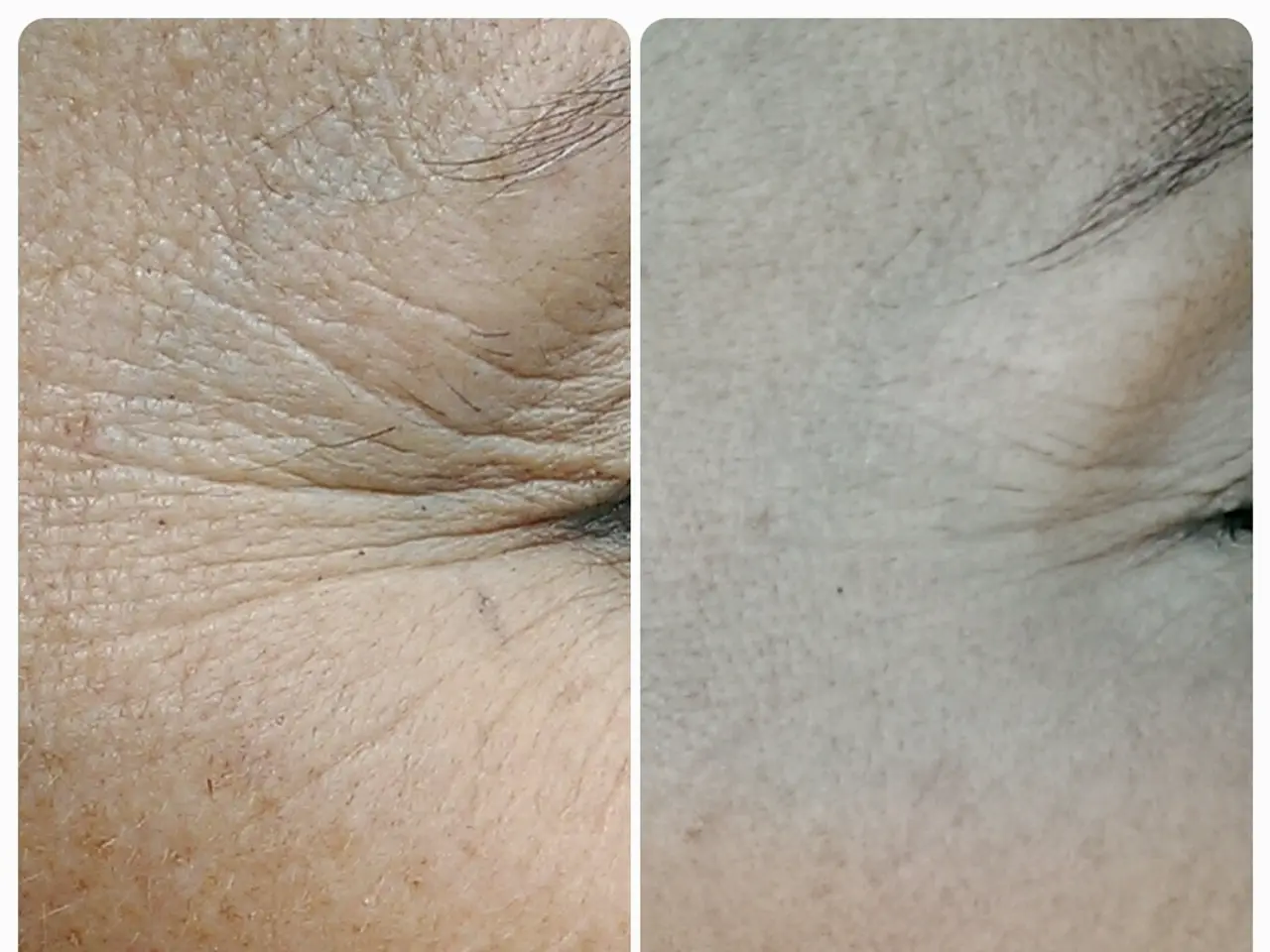Surgical solutions for combating acne?
Acne may be a common skin condition, but its lingering effects, such as scarring, can cause distress for many individuals. Fortunately, surgical treatments are available to address acne scars, offering satisfactory cosmetic results.
Surgical options for acne scar treatments primarily target the scars themselves, rather than active acne lesions. The main surgical procedures include subcision, punch excision, and dermal filler injections.
Subcision, a technique involving the insertion of a fine needle under the skin, aims to break the fibrous bands pulling down depressed or rolling scars, allowing the skin surface to lift. This method is particularly effective for deep, atrophic (depressed) scars and rolling scars. Dermal fillers, such as Juvederm, Restylane, or Sculptra, can be used in conjunction with subcision to replenish volume and smooth the skin surface.
Punch excision is used for deep scars, where the scar tissue is surgically removed, followed by suturing the defect. This method is effective for ice pick or boxcar scars where the scar tissue is sharply demarcated and fibrotic.
Dermal fillers, such as Juvederm, Restylane, or Sculptra, are also used independently to immediately restore volume and smooth out the skin in atrophic scars. Hyaluronic acid fillers offer instant plumping lasting 9-12 months, while poly-L-lactic acid (Sculptra) stimulates collagen production with results lasting up to two years.
Other minimally invasive or adjunct procedures include microneedling, laser resurfacing, and chemical peels. Microneedling uses tiny needles to create controlled skin injury, stimulating collagen production and natural healing. Laser resurfacing, such as fractional CO2 laser, precisely ablates the scarred skin layers and stimulates collagen remodeling. Chemical peels can aid in scar treatment, especially superficial scars and discoloration, though they’re not surgical.
Effectiveness varies by scar type and severity. Subcision and fillers are best for rolling and atrophic scars, while punch excision is preferred for deep, ice pick scars. Laser and microneedling improve multiple scar types through collagen stimulation. Combining treatments often yields optimal results.
It's essential to note that if acne persists, causing emotional distress, painful lesions, leaving scarring, or affecting mental health, it is advisable to consult a dermatologist for support and treatment.
In recent studies, pulsed dye laser surgery, especially procedures that use a longer pulse time, have shown significant decreases in acne, particularly when treatment consists of four or more sessions. Acne treatment typically involves topical and oral medications, but in some cases, a doctor may suggest surgical options in addition to primary therapy.
Avoiding acne breakouts can be achieved through lifestyle changes, such as avoiding touching the face, washing the face twice a day and after sweating, allowing the skin to heal on its own, shampooing the hair regularly if it is particularly oily, and avoiding the use of too many products.
In conclusion, surgical acne scar treatments provide effective solutions for improving the appearance of acne scars. These treatments can be integrated into multimodal treatment plans, incorporating laser, microneedling, and chemical peels for comprehensive improvement. If you are experiencing persistent acne or are concerned about scarring, it is recommended to consult a dermatologist for personalised advice and treatment options.
Skincare and health-and-wellness practices can help prevent acne breakouts by avoiding touching the face, washing the face twice a day and after sweating, allowing the skin to heal on its own, shampooing the hair regularly if it is particularly oily, and avoiding the use of too many products.
Dermatology plays a crucial role in the treatment of acne, as it may cause emotional distress, painful lesions, leave scarring, or affect mental health. Pulsed dye laser surgery, particularly procedures with longer pulse times, have shown significant decreases in acne with four or more sessions.
Surgical options for acne scar treatments, such as subcision, punch excision, and dermal filler injections, primarily target the scars themselves and offer satisfactory cosmetic results. These treatments can be integral parts of comprehensive skincare routines, incorporating laser, microneedling, and chemical peels for optimal results.




